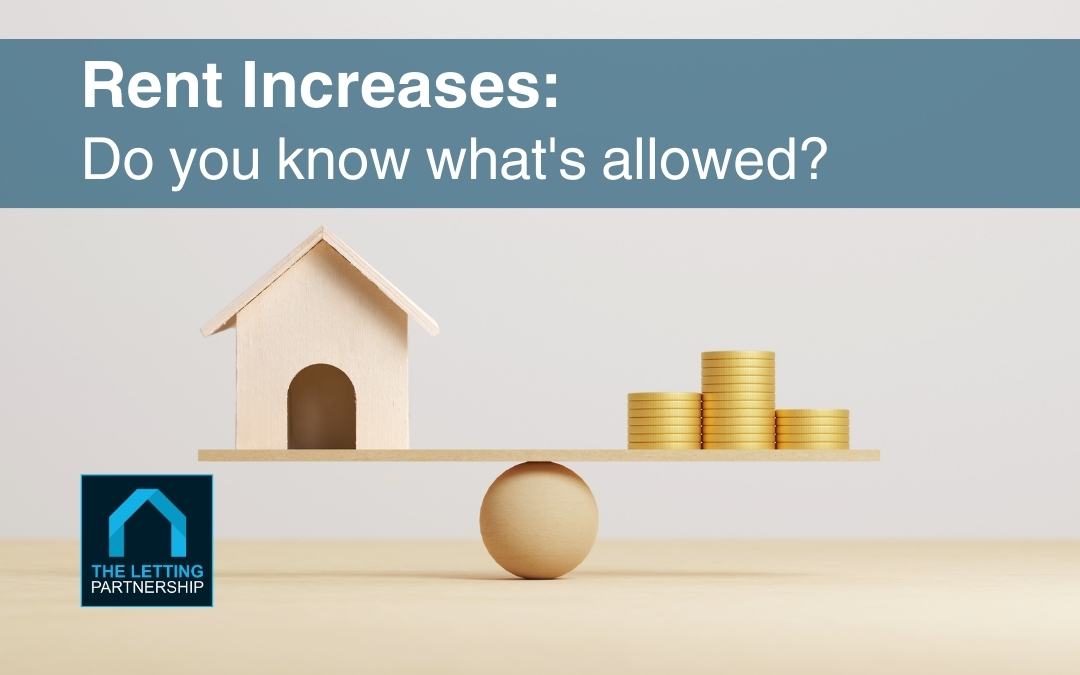The UK has recently experienced a notable increase in interest rates, and this development has had a direct impact on mortgage rates across the country.
As a result, numerous landlords have been prompted to contact their letting agents to explore the possibility of raising the rent on their properties. With their own costs on the rise, landlords are seeking to mitigate the financial strain by passing some of the burden onto tenants.
This trend reflects the interconnected nature of the UK property market, where fluctuations in interest rates can ripple through various sectors, affecting both property owners and tenants alike.
It’s crucial that as a UK letting agent you are in possession of all of the facts surrounding this topic so that you are able to advise your landlords what they can and cannot do regarding rental increases.
In this article we look at what options are currently legally available to a landlord if they want to increase the rent on one or more of their properties.
How Often Can the Rent be Increased?
In most cases, an Assured Shorthold Tenancy (AST) will start as a fixed-term agreement, however, over time, some evolve into a periodic tenancy, rolling week by week or month by month. As a letting agent, to be able to advise landlords, you must first understand the type of tenancy agreement the landlord has. i.e. periodic or fixed.
Fixed Term Tenancies
If a fixed-term agreement is in place then the rent cannot be increased until the fixed term ends, unless the tenant agrees otherwise.
A landlord cannot insist on increasing rent during a fixed-term tenancy unless there is a clause about rent reviews in the agreement. For example, if the tenancy is for 2 years with no break clause, the rent clause can state that the rent will be reviewed or increased on the 12 month anniversary of the start of the tenancy.
If there is such a clause in the agreement, the landlord can increase the rental amount during the tenancy, but the agreement must state explicitly when and how those rent increases will occur.
When the fixed term ends you may ask the tenant to sign a renewal agreement at a higher rent, but if they do not agree then the tenancy becomes periodic and the landlord may only increase the rent by way of a Section 13 Notice (Form 4).
Periodic Tenancies
In England, if the tenancy is periodic then a Section 13 Notice (Form 4) must be used and rent can not be increased more than once a year – unless the tenant specifically agrees to it.
For periodic tenancies in England, the rent must not be increased within the first 52 weeks after the start of the tenancy, or within 52 weeks after the date when rent was last increased using a Section 13 Notice (Form 4) unless the fixed term ended after 6 months and continued on a periodic agreement (as above). If the tenant agrees to a rent increase without a Section 13 Notice (Form 4) then this is allowed.
Note that a Section 13 Notice (Form 4) cannot be served until after the fixed term ends.
You can find out more about Section 13 Notices (Form 4) here.
How Much Notice is Required for a Rent Increase?
A minimum period of notice must be given before the proposed new rent can take effect. That period is:
- One month for a tenancy which is monthly or for a lesser period, e.g. weekly or fortnightly.
- Six months for a yearly tenancy.
- In all other cases, a period equal to the length of the tenancy. For example, three months in the case of a quarterly tenancy.

How much can the Rent be Increased By?
Landlords are allowed to increase the rent to any amount they see fit, but of course, it must be within reason.
There is a government stipulation in England and Wales that says landlords must be realistic and fair regarding rent increases. This means that a tenant’s rent should only go up in line with the local average for their property type.
For example, if the current rent on a two-bedroom terraced property is £900 per month and similar homes in the area fetch £1000, it’s within a landlord’s rights to demand an increase in rent of £100 per month. However, should a landlord ask to raise the rent by an extra £500 per month, that increase would fail the “realistic and fair” test.
Can Tenants Refuse a Rent Increase?
If a tenant believes a landlord’s proposed increase is ‘unfair and unrealistic,’ they can challenge the proposal. This is why as a reputable letting agent you must be able to advise your landlords to be prepared to come to an agreement, particularly if their current tenant is reliable. The official government website provides further detailed information about renting in England and Wales. The section on increasing rents offers insights into the legal guidelines and procedures.
There are different rules for increasing rent in Scotland and increasing rent in Northern Ireland.
This article is intended as a guide only and does not constitute legal advice. If in doubt seek professional legal advice.
* * *
Would you like to receive our monthly Newsletter?
Sign-up for our monthly Newsletter for helpful articles and regular industry updates. We promise not to spam you with hundreds of emails and you can unsubscribe at any time.

